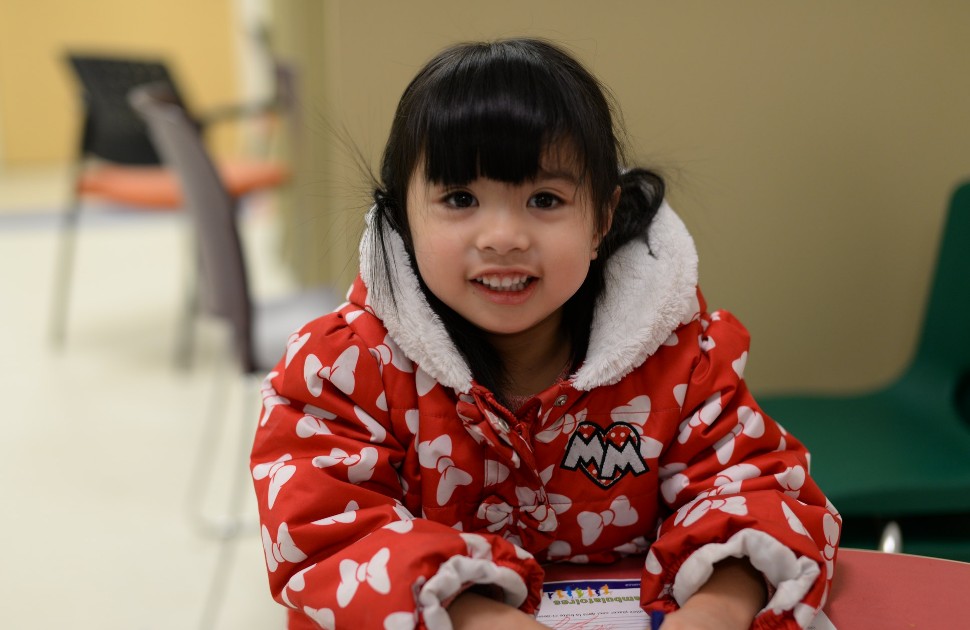|
The bipolar child: the definitive and reassuring guide to childhood's most misunderstood disorder
|
|
Papolos, Dimitri -- New York: Broadway Books, 2006.
This book comprehensively details the bipolar diagnosis, explains how to find treatment and advises parents about ways to advocate effectively for their children in school.
|
|
The bipolar teen: what you can do the help your child and family
|
|
Miklowitz, David -- New York: The Guilford Press, 2007.
This book provides tools you can use to make home life manageable again. You'll learn to spot the differences between normal teenage behavior and the telltale symptoms of mania and depression.
|
|
Brandon and the bipolar bear: a story for children with bipolar disorder
|
|
Anglada, Tracy -- Murdock FL: BPChildren, 2001.
Brandon is a young boy who alternates between strong feelings of sadness, anger and anxiety. His mother recognizes his difficulties and takes him to visit with a doctor. For ages 4 - 11.
|
|
Educating and nurturing the bipolar child [DVD]
|
|
Papolos, Janice -- New Jersey: Juvenile Bipolar Research Foundation, 2004.
This DVD provides cutting-edge information and powerful strategies for teachers and parents to enhance the bipolar child's ability to learn and to experience academic and social success.
|
|
Kids in the syndrome mix of ADHD, LD, Asperger's, Tourettes's, Bipolar, & more: the one stop guide for parents, teachers and other professionals
|
|
Kutscher, Martin L. - London: Jessica Kinsley, 2005.
The author presents effective behavioral strategies for responding to children who display traits of these disorders, whether at home, at school, or in other settings, along with case vignettes and practical tips.
|
|
Living well with bipolar disorder [DVD]
|
|
Monkey See Productions Guilford Publications, 2002.
In this video, six individuals of different ages and backgrounds candidly describe the impact bipolar disorder has had on their lives and the strategies they have learned for dealing with it.
|
|
Matt the moody hermit crab
|
|
McGee, Caroline C. -- Nashville TN: McGee & Woods, 2002.
Matt seems to be angry with everyone. He has problems with his family, his classmates, and his soccer team. Then he is convinced that aliens have taken over the planet. His mother and teacher get him the help he needs. For ages: 8 – 12.
|
|
Matt the moody hermit crab: guidebook for parents and teachers
|
|
McGee, Caroline C. -- Nashville TN: McGee & Woods, 2002.
In this companion guidebook to Matt the Moody Hermit Crab you will find symptoms and statistics, tips for parents and teachers on how to help students with bipolar disorder succeed, and a section that follows the book with chapter questions that can be used for class discussion to help non-bipolar kids understand what ‘Matt' is going through and how it feels to live with a bipolar sibling.
|
|
Parenting a bipolar child: what to do & why
|
|
Faedda, Gianni L. -- Oakland, CA: New Harbinger Publications Inc, 2006.
This book provides a comprehensive approach to the treatment of children with bipolar disorder. It offers parents step-by-step advice for selecting professional care and medications, dealing with sleep problems, and managing the child's issues at school.
|
|
The pits and the pendulum: a life with bipolar disorder
|
|
Adams, Brian -- London: Jessica Kinsley, 2003.
Now in his fifties, the author has experienced the highs and lows of bipolar disorder since he was 20. He has been unemployed, hospitalized and writes of these periods and his various forms of treatment.
|
|
Turbo Max: a story for siblings of children with bipolar disorder
|
|
Anglada, Tracy -- Murdock, FL: BPChildren, 2002.
Rick is advised by his parents and doctors to write his feelings about what it's like having a sister with bipolar disease. He and his sister spend a lot of time working on his car, Turbo Max, but sometimes there is a lot of frustration. Appropriate for ages: 8-12 years.
|
|
Understanding the mind of the bipolar child: the complete guide to the development, treatment, and parenting of children with bipolar disorder
|
|
Lombardo, Gregory T. - New York: St. Martin's Press, 2006.
Provides a complete picture of bipolar disorder, ranging from infancy through adolescence, to enable parents to provide effective support.
|
| Welcome to the jungle: everything you ever wanted to know about bipolar but were too freaked out to ask |
|
Smith, Hilary - San Francisco: Red Wheel/Weiser, 2010.
This book takes an upfront, empowering approach to the challenges of being diagnosed with bipolar. Both humorous and immensely honest, it offers a true 'in the trenches' perspective young readers will trust.
|
|
What works for bipolar kids: help and hope for parents
|
|
Pavuluri, Mani. -- New York: Guilford Press, 2008.
Based on 20 years of experience with bipolar kids and their families, this book delivers strategies for reducing or eliminating problems with mania, depression, aggression, sleep disturbances, and other symptoms. It also emphasizes ways to maintain a positive atmosphere at home and to help these kids stay balanced, and focus on their achievements.
|





